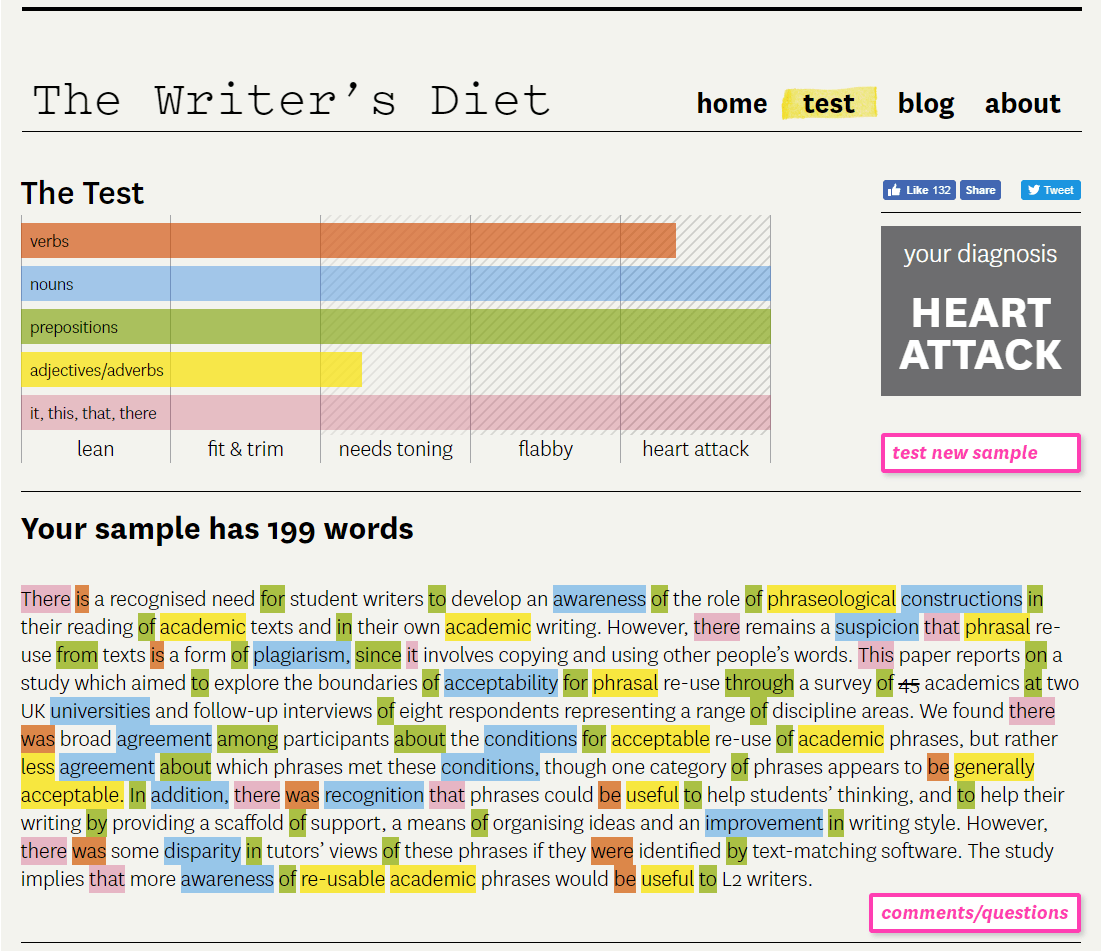The Writer’s Diet assesses a “proper” academic article
We ran the abstract of a peer-reviewed article (co-written by John Morley, the creator of the Academic Phrasebank resource) through The Writer’s Diet. Morley’s database aims to equip academic and scientific writers (especially novices and ESL/EFL students) with stock phrases that they can adapt and use for their own writing. We thought that the article “Phrasal Intertextuality: The responses of academics from different disciplines to students’ re-use of phrases” could serve as an example of a “proper” academic publication and also as an illustration of generic and disciplinary expectations.
The abstract was so “fatty” that had it been a living being, it would have had a “heart attack”:
To use the language of health, the text’s vocabulary contains very few strong, fit, active and nutritious words. Instead, it relies on weak verbs (forms of “to be”), abstract nouns (“conditions,” “recognition,” “acceptability”), modifier adverbs (“less” agreement, “generally” acceptable), and the vague, impersonal phrase “there is/was,” which academics so much love to use to imply objectivity.
The experiment invites us to consider whether good academic writing bears the same characteristics as good writing in general. And, if so, might we try to compose more engaging and lively scholarly prose that aimed, like fiction and non-fiction writing, to deliver some reading pleasure, too?
The Writer’s Diet version available in 2019 was used in this experiment.
Text used in the experiment: Mary Davis, John Morley. (2015). “Phrasal intertextuality: The responses of academics from different disciplines to students’ re-use of phrases.” Journal of Second Language Writing 28 (June): 20-35.
